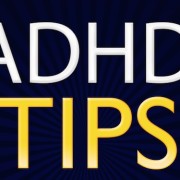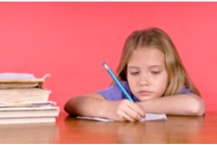7 Parent Self-Help Tips
- Delay your responses. Sometimes in the moment of stressful events, we can respond to problems impulsively. It is okay to take a few moments to calm down and think of a way to address your child’s behavior. There is nothing wrong with saying, “I’ll discuss this with you in a few minutes.”
- Try meditating! Learning to relax using mental imagery and progressive muscle relaxation can lower your stress level.
- Have a weekend to yourself. Taking a weekend away alone or with your partner can recharge your body and mind. Remember that you deserve to take good care of yourself, not just your child.
- Make time to enjoy a hobby. Giving yourself some time to read, knit, write, craft, or do any of the endless variety of hobbies can be just as renewing as taking a weekend away.
- Join a support group for parents of children with ADHD. Support groups are a great resource for discussing problems and solutions to problems. Other parents struggle just as you do! Perhaps, they have some advice and ideas or are in need of your advice. Being surrounded by people with similar issues is a unique support experience. You may even make some friends!
- Share parenting with your partner! If you feel that you don’t have at least some time for yourself during the day, consider talking to your partner, as he/she may need to take more responsibility for child or household care.
- Exercise to reduce stress and avoid chemical substances. Alcohol may result in fatigue and increased frustration while nicotine and caffeine can produce feelings of stress. Stress and fatigue are the last things you need.
<em><strong>Contact Dr. Gordon for help with your ADHD. We have treatment and solutions available online, by phone, and in our offices.</strong></em>
written by:
Brianna Malinowski,
Jay Gordon, Ph.D
<em>
Barkley, R. A. (2013). Taking charge of ADHD: The complete, authoritative guide for parents (3rd ed.). NY: The Guilford Press.
</em>



